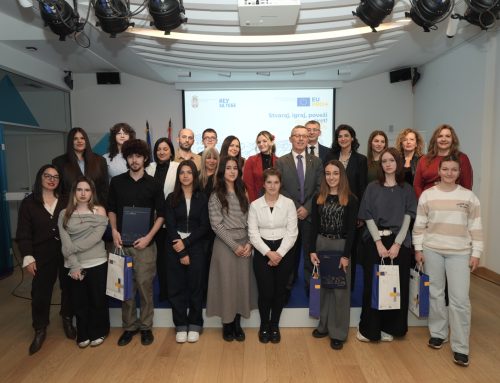On 14 August, an independent European external auditor began the second external audit of the Serbian implementation structures of the instrument for the pre-accession assistance in the policy area “Agriculture and Rural Development” (IPARD, see background information below).
The audit opinion is expected to be produced in September. It is the pre-condition for the re-submission of the request for entrustment (accreditation) to the European Commission.
Following the re-submission of the entrustment package, auditors from the European Commission’s Directorate General for Agriculture and Rural Development (DG AGRI) will visit Serbia before the end of the year to determine if the Financial Agreement with Serbia on the IPARD can be concluded.
In 2015-2016, audits carried out by external auditor and DG AGRI found out that at the time Serbia was not yet ready for the IPARD implementation. Since then, the EU and Serbian authorities were working closely together on addressing all audit findings.
Background on IPARD grants to Serbia
IPARD grants will directly benefit Serbian farmers, businesses and rural communities.
EUR 175 million for IPARD in Serbia has been allocated for the years 2014-2020, in annual instalments in the form of grants. It is estimated that EUR 175 million in IPARD grants may lead to a total investment in agriculture of approximately EUR 400 million. Applicants will be able to use grants for up to 70% of eligible expenditure.
The Serbian authorities are in the process of preparing the management and control systems for the implementation of the IPARD programme.
The Serbian authorities have selected six main measures that will be supported with EU grants:
- Investments in agricultural holdings by farmers producing milk, meat, fruit, vegetables, other crops;
- Investments in processing and marketing of agricultural products for micro, small and medium-sized enterprises processing milk, meat, fruit and vegetables;
- Organic farming;
- Local development in rural areas by Local Action Groups (specially public-private partnerships);
- Farm diversification and business development for private rural tourism facilities;
- Technical Assistance.




